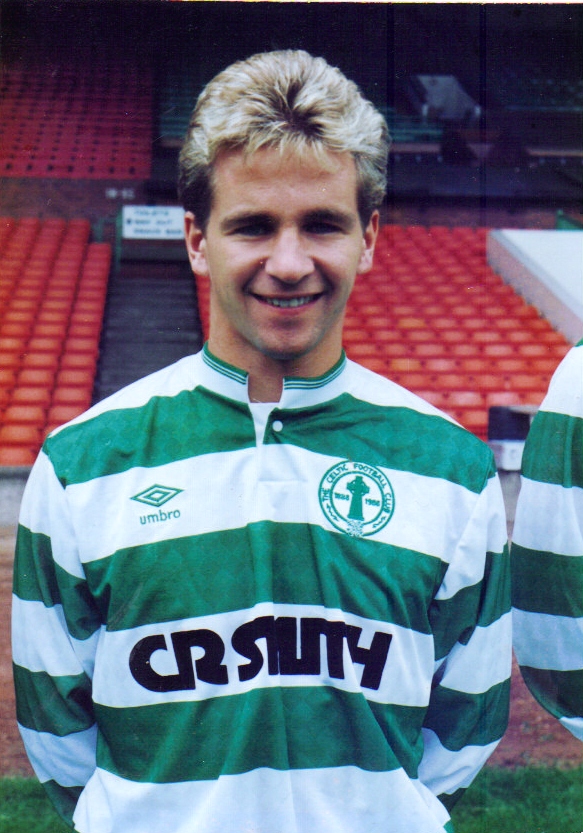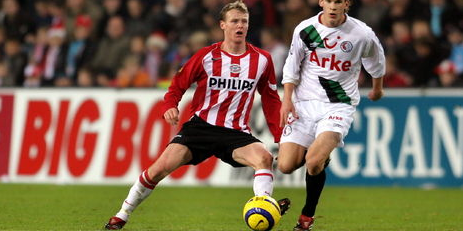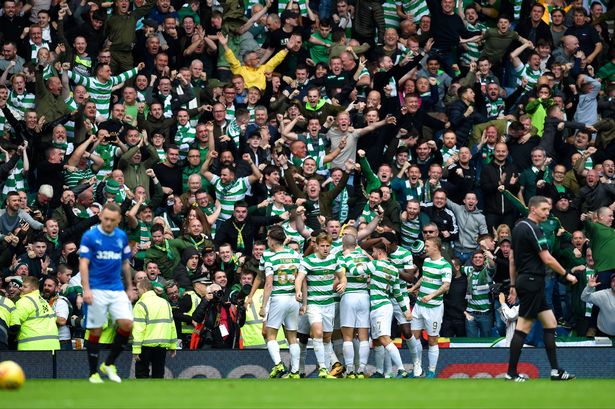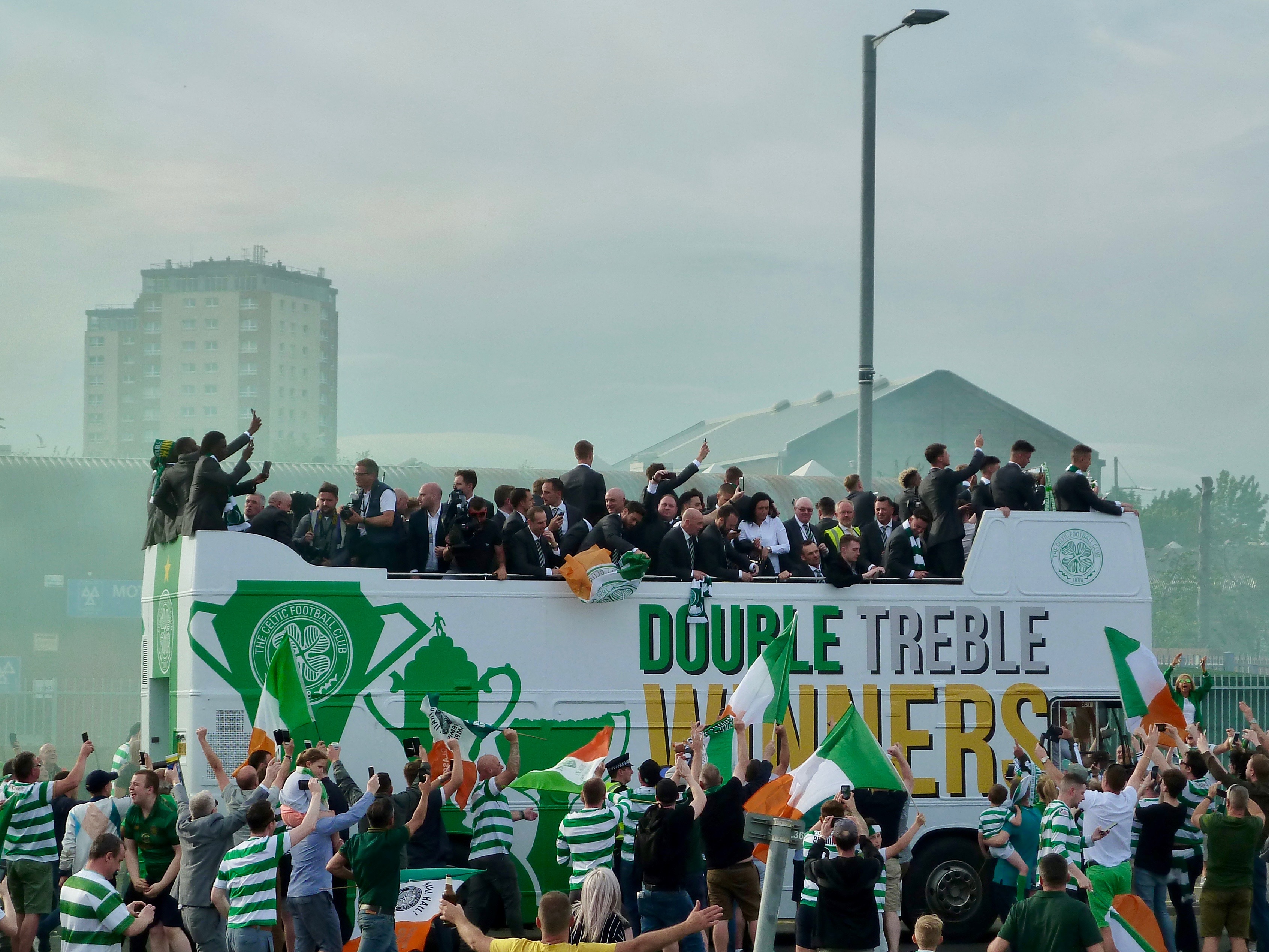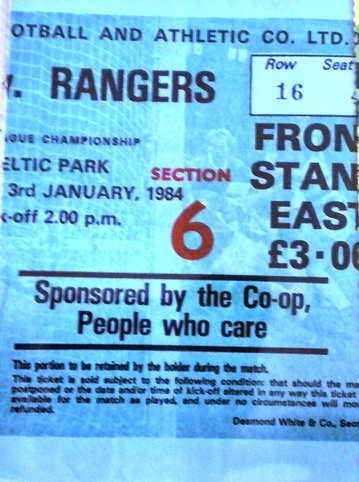In July 1987 Chris Morris signed for Celtic from Sheffield Wednesday. He was a low key signing and not a great deal was known of him at the time. The Cornishman was described as a utility player, capable of playing at right back, right wing and in central defence.
Billy McNeill had just returned as Celtic manager for his second period as manager and he had taken a liking to Morris after having watched Chris in action whilst he was manager of Manchester City and Aston Villa, between 1983 and 1987.
McNeill stated from the outset that Morris was signed to fill the right back role, recently vacated by Danny McGrain. Danny was a Celtic legend and it was a daunting task for Morris to be faced with replacing such an accomplished performer as McGrain.
Morris settled well into his new role at Celtic and quickly became one of the team’s most consistent performers. The Celtic fans quickly took to his energetic, overlapping runs down the right flank and his pace ensured that few wingers were able to give him much trouble on the defensive side of his game.
In the early part of the season he established a superb right wing combination with Billy Stark. Stark’s intelligent off the ball running in midfield created space for Morris down the right wing. He was an excellent crosser of the ball and created many goals in Celtic’s memorable centenary season league and Scottish Cup double winning season.
On 2nd January 1988 Celtic beat Rangers 2-0 in the vitally important new year fixture. Most people remember that match for Paul McStay’s sublime performance but it should be noted that Frank McAvennie’s two goals were courtesy of excellent crosses from Chris Morris. That day, Chris also got the better of Rangers new winger, Mark Walters, and the two men went on to enjoy some fair tussles in the late 1980’s.
Chris’s Irish heritage ensured he could represent the Republic of Ireland and Celtic fans had great pride in seeing him play with distinction for the Irish team in the 1988 European championships in West Germany, alongside Celtic team mates Pat Bonner and Mick McCarthy. The Irish team performed admirably and Chris became a big favourite of Ireland’s manager, Jack Charlton.
He was now a popular figure amongst the Celtic support and was part of the 1989 Scottish Cup winning side who beat Rangers 1-0 on an exceptionally warm day at Hampden with Joe Miller scoring the winning goal on the day. Miller mainly played on the right wing and he developed a good understanding with Chris, who supported him from his right back berth.
Sadly, things began to go badly for Celtic after 1989. A succession of experienced players – Roy Aitken, Mick McCarthy, Tommy Burns, Billy Stark, Mark McGhee and Frank McAvennie – all left within a short period of time. Celtic were unable to replace them with players of a similarly high calibre and the team began to struggle.
Chris managed to maintain a decent standard of form and he was in the Celtic sides which lost, very narrowly, in cup finals to Aberdeen and Rangers in 1990. That summer he was honoured to represent Ireland in the World Cup and played in every game as the Irish team performed superbly, only losing to host nation, Italy, in the quarter finals.
The 1990-91 season was a disappointment and this resulted in Liam Brady replacing Billy McNeill as Celtic manager. Brady used Morris sparingly, sometimes preferring young defender, Mark McNally, at right back. In August 1991, Brady was very keen to sign Middlesbrough striker, Andy Payton. So much so that he used Chris Morris and Derek Whyte as part of a cash-swap deal which resulted in Chris moving to ‘The Boro’.
Chris Morris was only at Celtic for four seasons but crammed more into his career in that period than some players can in their entire careers. He was appreciated by the fans for always giving his all in a Celtic jersey. The biggest compliment that can be paid to Chris was that he favourably replaced Danny McGrain in the eyes of the Celtic supporters for a period. That, indeed, is something he can be immensely proud of.

